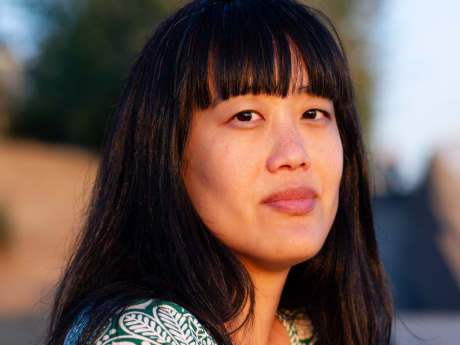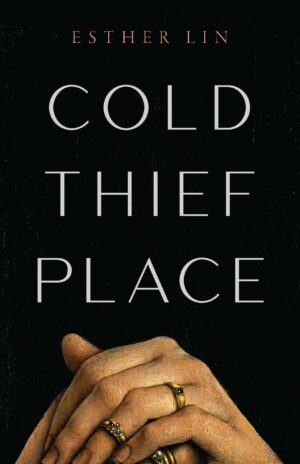In Their Own Words
Esther Lin on “The Ghost Wife”

from The Ghost Wife
Who, after years
with her husband,
years of rearing
their strapping boy,
is scorched by an eye.
She was gathering laundry.
The sun stuttered
from the clouds.
The rice bubbled
on the stove. Her face
and hands bubbled
too. She did not
cry out. She did not
speak. She was hurried
indoors. What to do?
The neighbors. The talk.
The thing to do was
to lay her in a coffin
upstairs
and close the lid.
*
Such wives were
revered by my grandmother
and her grandmother.
Who knows what single
women thought? Single—
the sickly, the ugly,
or kept back
to tend ageing parents.
A role my mother prepared
me for. To fold sheets.
Call credit-card companies.
Make light chatter. Drive.
She died suddenly,
before she could enjoy
this. Three years later
I did the unthinkable:
I married. According
to the folk tales,
it is not the union
of inhuman to human
that is the great metaphor.
You are not nothing
before you marry.
Rather, you are simply
one without a story.
Become a wife.
That is a metamorphosis
worthy of legend.
Reprinted from Cold Thief Place (Alice James Books, 2025) with permission of the poet and publisher.
On “The Ghost Wife”
Despite my best efforts, I am more like my mother than not. For example, we both married for the permission to live in circumstances we found tolerable. I married for a green card in the United States, which means claiming a permanent residency in this country, a wish to stay here all my livelong life. She married to flee Communist China—first by engaging herself to a man in Vietnam, leaving him, marrying another man in Hong Kong, leaving him, and finally marrying my father, in Brazil. She was willing to go anywhere on the planet, so long as it was not China.
But China came with her, and me, in its folklore: the story of a perfect, long-suffering wife who births an heir and protects her husband from her own grim nature. It just so happens that this perfect wife is a woman already dead. Residing near the ghost wife is the madwoman in the attic, from whose novel, Wide Sargasso Sea, I drew the quote for my book title, Cold Thief Place. The infamous Antoinette is who I feared I’d transform into: deranged and in custody.
I wrote the poems of this book from small spaces. The ghost wife’s coffin, the attic, my childhood, my marriage, all confined and unpredictable. Writing alongside these wives felt terribly good. Sometimes I wrote for the three of us, sometimes for my mother. Other wives populate my book: Emma Bovary, Anna Karenina, mothers who were left behind in the old country, desperate for news of their children—including my grandmother, who lived to the end of her days in China.
Marriage remains a dark horizon for me, one I won’t personally venture toward again. But as a poet, I am obsessed with this bizarre patriarchal institution; what rights and dignity a woman gains publicly, and what rights and dignity she loses privately. There’s an upsetting, Christ-like heroism to the exchange. The wives in Cold Thief Place taught me that to be married is to achieve the impossible: to elevate the other without requesting anything in return. To produce an heir because of and in spite of rape. To nurture that unwanted child. To shield the husband from one’s own true nature. It is legendary.



